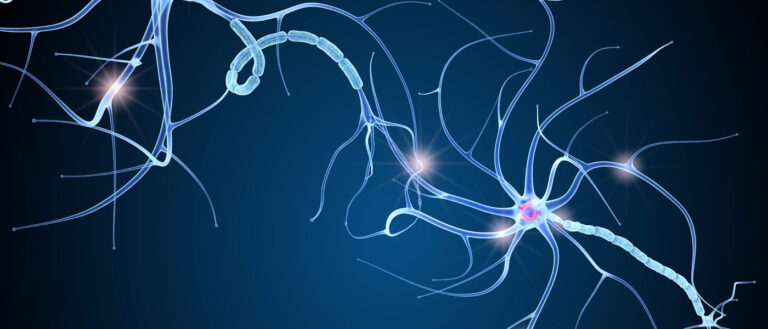Treatments for multiple sclerosis (MS) can control relapses, but don’t stop the disease from progressing—or promote brain repair.
But with financial support from the National Multiple Sclerosis Society (NMSS), a postdoctoral researcher at the Case Western Reserve University School of Medicine will lead a team hoping to identify new targets for treatments that could repair damage to the nervous system in people with MS.

NMSS awarded Benjamin Clayton, a postdoctoral researcher in the lab of Paul Tesar, the Dr. Donald and Ruth Weber Goodman Professor of Innovative Therapeutics at the School of Medicine, a $550,000 Career Transition Fellowship to lead the study.
“Our studies will identify new genes and pathways that could be drugged to promote repair of damage in the brain and spinal cord of patients with MS,” Clayton said.
In MS, a fatty substance called myelin that surrounds and protects nerve fibers is attacked and destroyed. This causes the death of myelin-producing cells, called oligodendrocytes, progressive damage to nerves and worsening disability.
MS can result in many symptoms, including vision loss, pain, fatigue, sensory loss, impaired coordination, mobility and cognitive changes.
Therapies to enhance myelin repair and protect the brain by promoting the formation of myelin producing oligodendrocytes are needed.
The study
Using cutting-edge genetic approaches, Clayton and his team are identifying new therapeutic targets for treatments that could enhance myelin repair by promoting oligodendrocyte formation. They are now performing studies to understand one of the targets they identified, as well as related genes, for clues to pathways that lead to myelin repair.
Funds from the NMSS award will support phased studies for the next five years. The study’s first two years will be under Tesar’s mentorship, followed by three years of support to launch Clayton’s career as an independent scientist.
“I am very grateful to be awarded this career-changing NMSS fellowship,” Clayton said. “The NMSS has always demonstrated a strong commitment to supporting early career scientists, and I am thrilled to become part of the NMSS community.”
“Ben’s science is a tour de force that is reshaping our understanding of MS and other neurological diseases,” Tesar said. “I am delighted that NMSS is recognizing his scientific impact and future potential with this prestigious award to launch his independent career.”
The NMSS is a nonprofit organization headquartered in New York City. Founded in 1946 by Sylvia Lawry, the NMSS funds research, advocates for change and provides education and sponsors services that help people with MS and their families. The NMSS Career Transition Fellowship fosters the development and productivity of young scientists who have potential to make significant contributions to—and help ensure the future and stability of—MS research.
For more information, contact Bill Lubinger at william.lubinger@case.edu.
This article was originally published Sept. 28, 2022.

